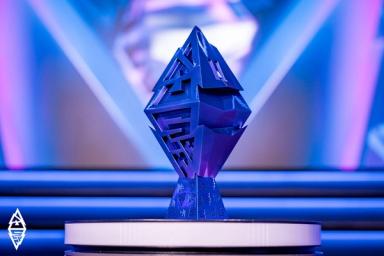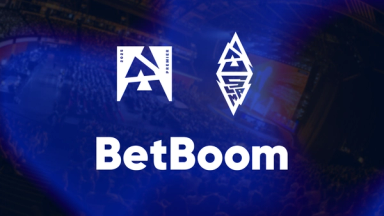Exclusive interview with N0tail: Finding balance & talking TOs


He is not only a Dota 2 legend but also the living embodiment of the underdog spirit – whose unwavering determination took him down the path of phenomenal success and becoming a champion.
Twice, he’s conquered The International, etching his name as an esports legend – a feat only a select few have achieved, proving that determination, resilience and self-belief can rewrite destiny.
We were fortunate enough to delve into the mind of a champion, an entrepreneur and an infectious esports personality as he gave us insights about his life post-retirement, the evolution of Dota 2, TI's dwindling prestige, the return of third-party tournament organisers including BLAST, and more.
Finding balance and embracing retirement
An illustrious career, spanning more than a decade, culminated when Notail, after winning consecutive TIs, embraced retirement in late 2021. Years of relentless grind with the ever-shifting meta, dwindling motivation, a growing desire to explore other aspects of life, and finding balance – Life, as they say, was calling.
“Maintaining a personal life was difficult as a pro gamer. Pets, plants and even personal plans – everything seemed to wither under the demanding schedule. Retirement has allowed me to reconnect with those missing pieces,” said Notail.
The game that once defined him is now a source of pure entertainment, as the TI champion has become an avid spectator, having last played a Dota 2 game almost two years back. As he blissfully puts it, “Honestly, retirement has been fantastic.”
On Sébastien "Ceb" Debs’ leadership
OG embarks on a journey of self-discovery, with none other than the charismatic co-founder and two-time TI champion Ceb at the helm. While Notail enjoys his life post-retirement, Ceb's “heads in” leadership leads the team on a good path.
With a rapidly evolving meta and a surge in player skill, pure theory crafting no longer guarantees victory. For the past few years, Europe's sustained dominance at the top demonstrates this perfectly.
Their relentless practice and impeccable execution are the secret sauce to consistently being the best, as compared to other regions, especially now when the competition has gone a notch above.
And who better than Ceb to instil this discipline in OG’s current Dota 2 iteration?
Notail said, “If anyone can bridge this gap, it's Sebastian. He's the most dedicated Dota player I've ever encountered. I'm confident he's the right person to lead, and I'm happy to support him from this side of the fence.”
On Dota 2’s evolution, map changes and its effects
Dota's strong comeback mechanic allows teams to bounce back from large deficits. However, this can be frustrating for teams with a lead, as a single lost fight can change the game, especially with the new patch and a changed map.
Notail said, “Ideally, teams should find a balance between pushing with a small lead and farming for a significant advantage. Confidence in execution also plays a role - a well-coordinated push with a smaller lead can be more effective than a risky push with a larger lead against a strong opponent.”
This has led to a "turtle meta" where teams prioritise securing resources and map control through farming and controlled fights instead of immediately pushing high ground. While this creates exciting comebacks, it can feel like a slow burn for the losing team.
Beyond the DPC: Third-party tournaments, Valve and The International (TI)
The DPC system, while attempting to streamline competition, had its downsides. Top players found online qualifiers frustrating, especially when compared to the old invite system. They preferred the excitement of playing LAN tournaments.
“The DPC system was horrible and was really bad for the game. We [OG] were one of the teams that were not so happy to play online matches. We’d much rather play LAN matches. So for me, it was extra hard,” said Notail.
According to Notail, the invite system, with a few exceptions, felt fair. Teams knew the criteria for receiving an invitation based on international and regional performance and the suspenseful, gradual reveal. This anticipation added to the hype surrounding The International (TI).
“You would stay up, hit F5 and see every hour one team get invited… that was a different feeling altogether,” said Notail.
But now, he’s optimistic with the resurgence of third-party tournaments – a welcome change.
After all, the game has been built on the backs of passionate people. Now, with enthusiastic organizers back in the fold, their investment propels Dota 2 even further and might stabilize, if not solidify, going ahead.
He said, “Tournaments like Beyond The Summit were a cornerstone of Dota’s success, but the DPC system stifled it, and they had to exit the space. It was a huge loss to the game and the community. I hope it doesn’t happen again. I hope these projects are really incorporated into the system if they’re successful.”
He’s hopeful third-party tournaments will allow the Dota community to showcase its creativity and passion once again.

A shadow was cast over The International as fans questioned the commitment, evident by a smaller prize pool and tarnished prestige – a stark contrast to the glorious carnival it was earlier.
Trying to make sense of the situation, Notail believes that esports relies heavily on the game publisher, unlike traditional sports, creating a unique dynamic where publishers control key aspects – the game, servers, and ultimately, the rules.
While publishers naturally want their games to be successful and their esports section to thrive, their focus can shift over time.
“Maintaining an intense focus on a single project for a decade is difficult, even for large companies. This explains why Dota might not always receive the level of attention some fans desire from Valve,” Notail explains.
Drawing parallels to studios like Epic Games or Riot, known for faster-paced decision-making, which can be both good and bad, Valve’s slower approach allows them to experiment and provide a long-term perspective.
He says, “Valve prioritises stability and long-term vision over rapid changes, which some may see as neglect. While not perfect, their focus on financial stability and pro-player experience creates a generally positive situation for Dota 2 esports.”
However, Notail expresses serious concern on hearing some past winners feeling undervalued because of the lower prize pool compared to previous years.
“This mentality can be toxic. Comparing achievements across periods is unrealistic.” He continues, “Winning TI, even with a smaller prize pool, is still a monumental feat. You're getting a significant amount of money, global recognition, and your name etched in Dota history.”
Releasing his inner zen, Notail believes that things have a way of coming full circle and everything will eventually fall into place.
On BLAST and the challenges of running an esports org
Some have said that PGL and ESL’s stranglehold on the competitive landscape leaves minimal space for others to thrive.
The criticism has been that if an entity or two with vast financial resources attempts to dominate the entire scene, it could stifle competition and essentially lead to a duopoly.
Ideally, Valve, as the game developer, should monitor this situation to ensure a healthy balance, Notail says.
“I hope there's going to be room for other people with pure raw passion and good ideas like Beyond The Summit and WePlay. I do hope these projects will find the space and won't be drowned out. I believe things will stabilise, but Valve might still have to do some policies.”
As a result, he’s excited about BLAST’s entry into the Dota 2 esports landscape. As a Counter-Strike fan who's witnessed BLAST tournaments firsthand in Copenhagen, Notail has no doubt they'll deliver exceptional Dota 2 events.
Their high production quality and transitioning that experience from CS to Dota 2 is a perfect match for Dota 2's dynamic gameplay. Notail said, “That should fit right, and for me, from Counter Strike to Dota 2, it's a perfect match.”
“I'm excited to see more top-tier organisations enter the Dota scene. This influx of professionalism and passion will undoubtedly elevate the viewing experience for fans. The end of the DPC has also opened the doors for these exciting and positive developments. It feels like a major win for the community,” said Notail.
He expects BLAST to put on a great show as they’ve been doing in Counter Strike 2 – the fireworks, experimenting with the format, coming up with innovative ideas and creating a fun and exciting viewing experience.
The challenges of running an esports org is a huge task, especially for a pro player turned entrepreneur. For Notail, launching the org was difficult but ultimately rewarding.
He found joy in the unexpected challenges, discovering surprising similarities between esports and the real world, where competition, teamwork, and desire to improve are crucial in both and directly impact the end result.
With his father involved in the day-to-day activities of running the company, OG focused on fostering a positive company culture and making smart decisions, thus avoiding common pitfalls like rapid expansion, burning cash through inflated salaries or crazy buyouts seen in other esports organisations.
Notail cherishes the good memories and the positive atmosphere OG has built over the years while employing approximately 50 people, keeping them happy, and succeeding for the most part.
On Regrets
Regrets, disappointments, happiness and other emotions come in a package across the board, and esports is no exception. Every experience, every challenge and every madness has a method to it.
It’s the same for Notail.
Looking back on his illustrious career, Notail believes he’s incredibly fortunate to have very few regrets, even with Dota, while there might be things he’d do differently in hindsight. But he wouldn’t change the overall journey, as every experience, including the mistakes, has shaped him into the person he is today.
He concludes, “Sure, there were low points, like playing with EternalEnvy. It was quite depressing and wasn't a great experience, but it ultimately made me stronger and more resilient. Life is full of lessons and challenges. While I wouldn't mind skipping some of those lessons, the experiences have shaped a life with almost no regrets.”













 Tundra Esports
Tundra Esports
 MOUZ
MOUZ
 Team Yandex
Team Yandex




